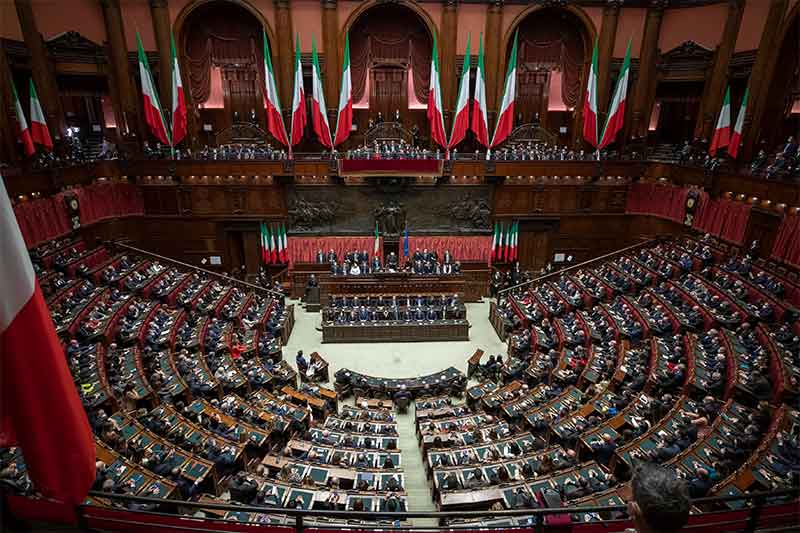The Italian parliament is currently debating a constitutional reform proposal around the idea of the ‘premierato’, which would enable the direct election of its future prime ministers. Far-right prime minister Giorgia Meloni and her party Fratelli d’Italia (Brothers of Italy) had placed this reform high on their agenda during the last general elections in 2022.
Italy’s prime minister is the head of government, appointed by the president of the Republic based on the election results, and must retain the confidence of Parliament to remain in office throughout their term. Retaining confidence is key and is the main reason why so many Italian governments have fallen in the past three decades (Meloni is the 14th head of government since 1992).
Hailing her proposal as “the mother of all reforms”, Meloni would be ready to hold a referendum on the premierato, claiming that the reform would fully align with Article 1 of the Italian Constitution (“Sovereignty belongs to the people”), as it would devolve all electoral power into the hands of citizens. The reform would also grant the prime minister the power to nominate and dismiss ministers, and more worryingly, judges of the constitutional court.
According to Meloni, it would contribute to avoiding Italy’s long tradition of unstable governments. The state would gain more international credibility abroad and be empowered to implement long-term strategies at home.
Israel is the only country in the world to have tested a version of premierato, introducing the direct election of a prime minister in 1996. However, it soon reverted to its old system, with some adjustments, in 2001, after the reform precipitated a series of political crises and instability.
This week, the Italian opposition has debated the proposed reform in parliament. Life senator and Holocaust survivor, Liliana Segre, said that she could not “keep quiet as the plan has alarming aspects”, giving excessive power to the Prime Minister.
The plan could also damage the constitutional status of the President of the Republic who, according to Segre, “would be forced to look up to a prime minister who would feel emboldened by the direct installation of the people”.
The debate in parliament, which will likely see members of the ruling coalition address the main concerns raised so far, is expected to conclude by next week.
As it stands, this reform would consolidate power in a single figure, to an extent that would not have equal in any other parliamentary democracy in the world. It would threaten a pluralistic system that emerged last century, after two decades of dictatorship in Italy. Reducing the constitutional accountability of the Prime Minister to Parliament, which embodies a broad spectrum of social and political opinions in an increasingly diverse country, would overturn the balance of powers and possibly threaten fundamental freedoms.
The debate comes a week after journalists went on strike over Fratelli d’Italia’s perceived influence and attacks on freedom of expression at state broadcaster Rai.
It remains to be seen if Fratelli d’Italia will insist on voting on the reform or wait until the upcoming European Parliament elections come to an end. Either way, this move should mobilize all Italians who fear a resurgence of authoritarianism to raise their voice and call for this reform to be shelved.
Chiara De Luca is a human rights researcher based in the UK.

